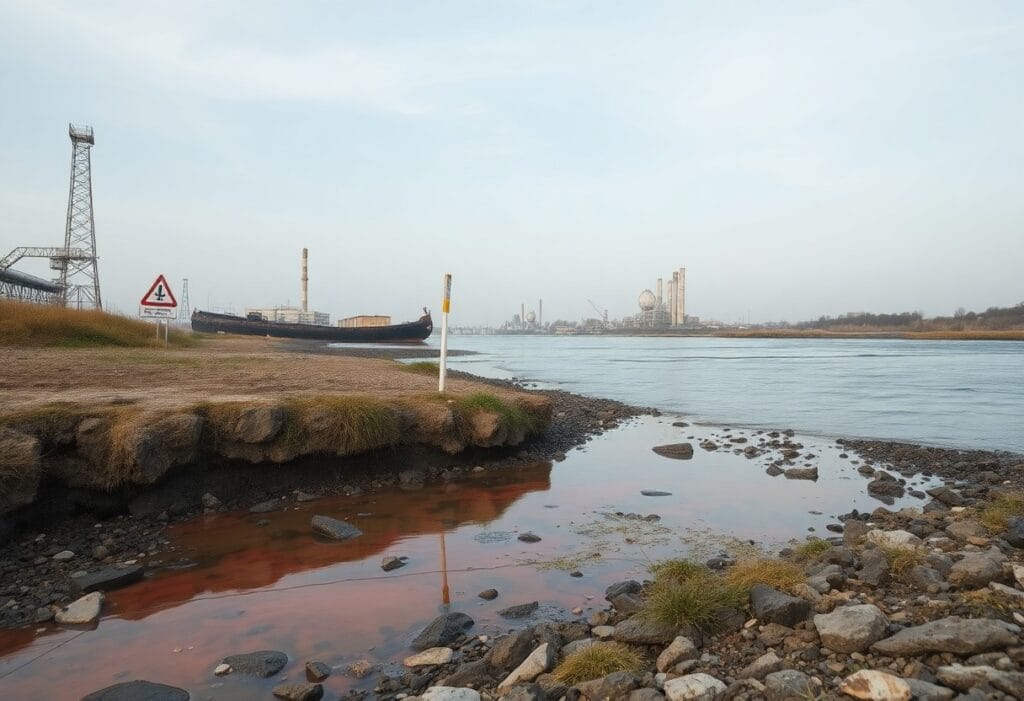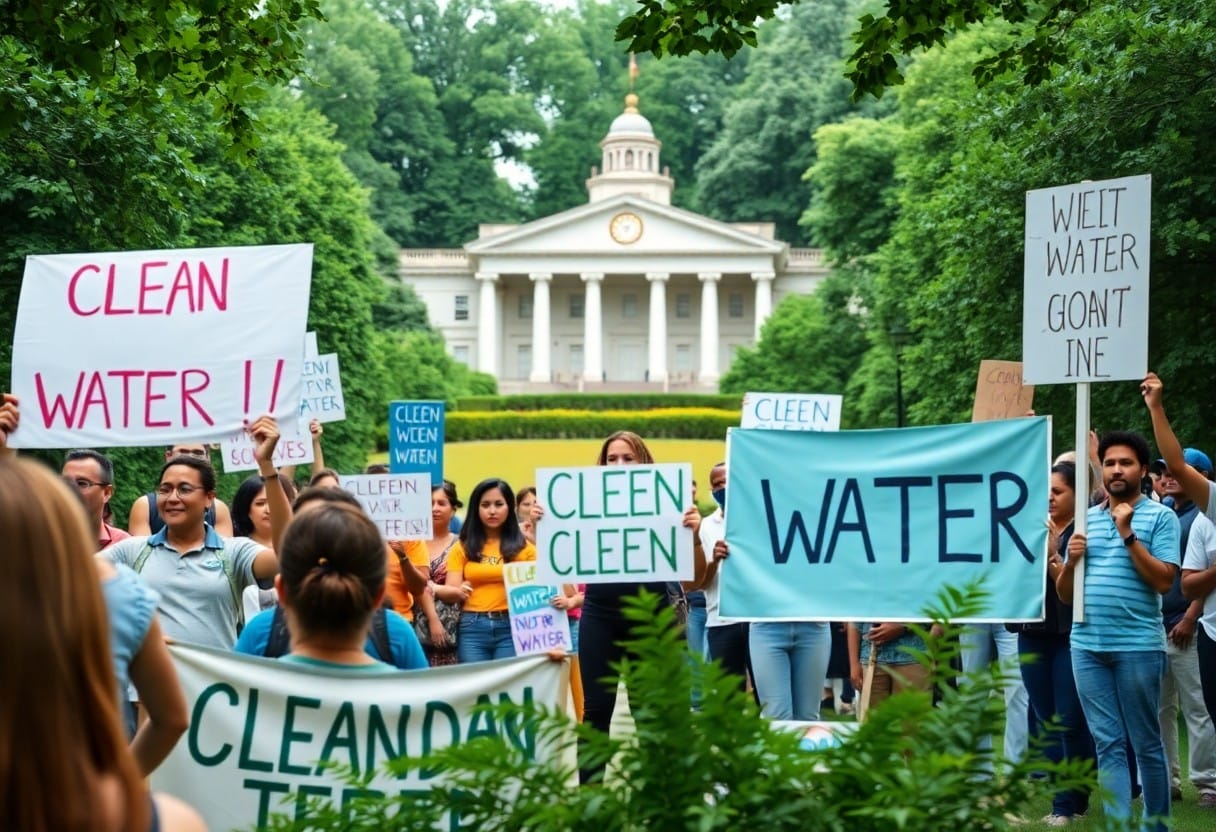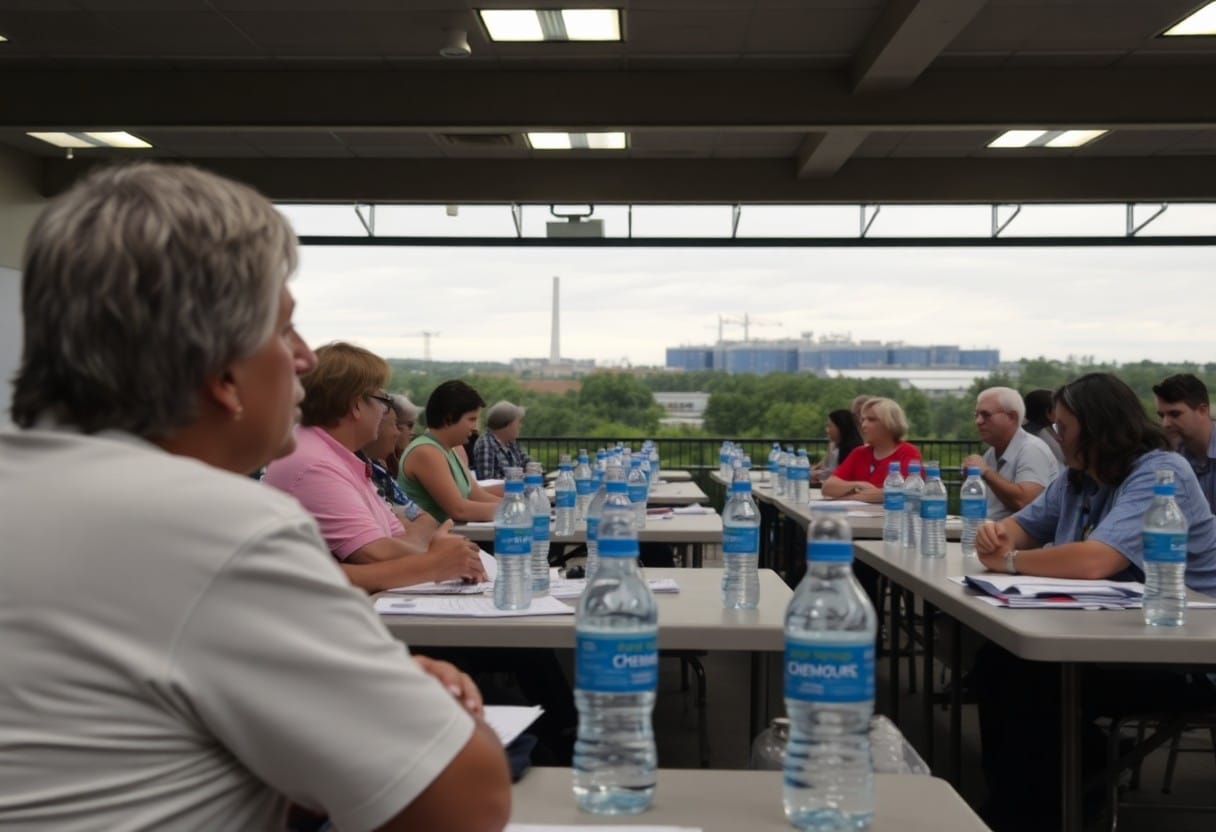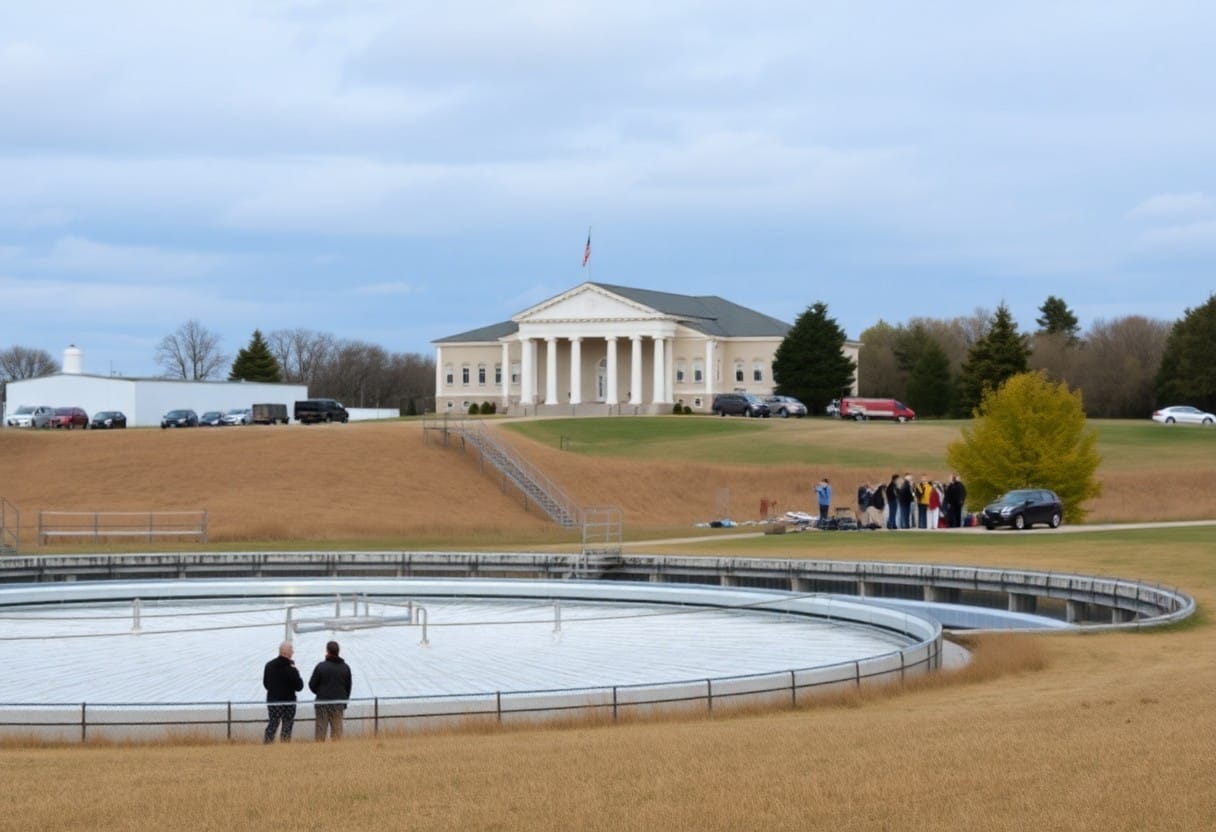With Chemours at the center of a devastating water contamination crisis in Fayetteville, it’s vital for you to understand the implications of this environmental disaster. Your health and safety may be at risk due to per- and polyfluoroalkyl substances (PFAS) found in local water sources. This blog post aims to guide you through the toxic trail of Chemours, exploring the effects on your community and what steps are being taken to address this alarming situation. Stay informed as we navigate the complexities of this pressing issue.
Background of Chemours
Your understanding of Chemours is crucial to grasping the full scope of the water contamination crisis in Fayetteville. Established in 2015 as a spin-off from DuPont, Chemours specializes in the manufacture of chemical products, including those used in consumer goods and industrial processes. The company’s operations have significant environmental impacts, particularly concerning water quality, as you will learn in this post.
History of Chemical Manufacturing
Below, you will find a brief overview of the long and complex history of chemical manufacturing, which dates back centuries. Initially focused on dyes and pigments, the industry evolved with the introduction of synthetic materials and fluorinated chemicals. This expansion has led to the development of various products, some of which have raised serious environmental and health concerns. As manufacturing practices have advanced, so too have the implications for public health and the ecosystem.
Overview of Fayetteville’s Water Sources
Before discussing the contamination issue, it’s important to familiarize yourself with Fayetteville’s primary water sources. The city primarily relies on surface water from the Cape Fear River and several additional reservoirs. This water supply serves both residential and commercial needs, underscoring the significance of its cleanliness and safety for the community.
Another aspect to consider is the vulnerability of these sources, particularly the Cape Fear River, which has been impacted by various industrial discharges over the years. Given that Fayetteville’s water supply comes from actively utilized sources, any contamination poses a serious risk to public health and the environment. Understanding the dynamics between chemical manufacturing and water sources will help you appreciate the gravity of the ongoing challenges facing Fayetteville residents.
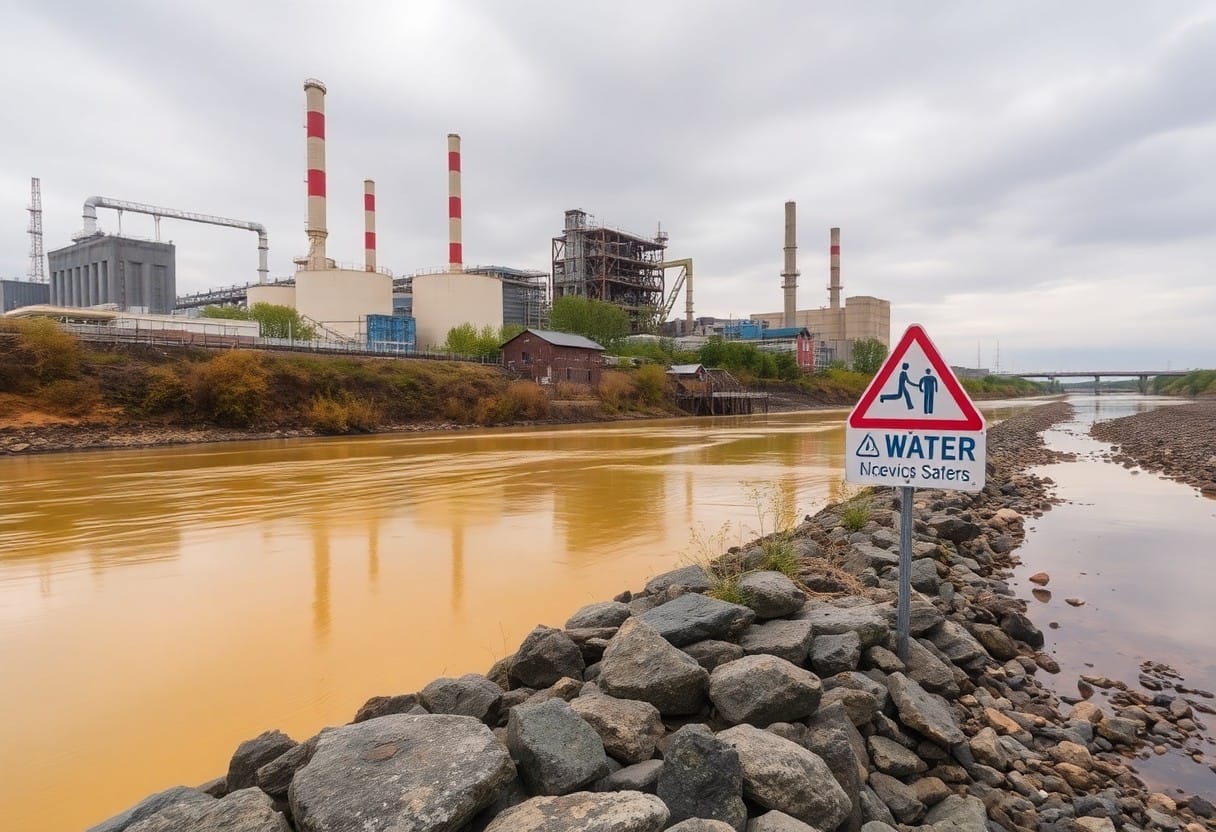
The Contamination Incident
Any resident of Fayetteville will tell you that the water crisis threatens public health. Reports and testing show dangerously high levels of toxic substances, as highlighted in this article about tainted fruit, toxic water: Chemours’ pollution spreads far …. This incident underscores the urgency for action and transparency from Chemours.
Timeline of Events
Across the years, numerous incidents and testing results have raised alarm bells regarding water contamination in the Fayetteville area. Critical milestones mark a timeline of negligence and environmental harm, leading to increased scrutiny from both local communities and governmental agencies.
Chemical Composition and Health Risks
Composition of the contaminants discharged by Chemours includes harmful per- and polyfluoroalkyl substances (PFAS), linked to severe health conditions. These persistent chemicals accumulate in your body over time, increasing risks for various diseases and long-term illnesses.
Contamination of water sources with PFAS presents significant health risks to you and your loved ones. Exposure can lead to several serious conditions, including hormone disruption, immune system impairment, and an elevated risk of certain cancers. With such toxic elements finding their way into the ecosystem, your daily access to clean water is severely jeopardized, prompting the need for immediate and effective remediation measures.
Community Response and Awareness
One of the most significant outcomes of Fayetteville’s water contamination crisis has been the awakening of community consciousness. Residents have come together to demand accountability and transparency from Chemours, while also educating themselves on the implications of toxic contamination on public health and the environment. This collective awareness has sparked a movement aimed at ensuring the safety of your water and advocating for more stringent regulations to protect your community’s health.
Local Activism and Advocacy
The grassroots initiatives in Fayetteville have empowered residents to mobilize and raise their voices against the pollution. Local activists have organized rallies, educational workshops, and support networks to share information and resources regarding the contamination. Their efforts highlight your collective desire for justice and improved environmental standards in your area.
Government Intervention and Regulations
Beside community activism, government intervention has been a vital component in addressing Fayetteville’s water contamination crisis. Local and state authorities have begun to take steps in regulating the chemical discharges from Chemours, aiming to protect your drinking water supply.
Intervention efforts have included launching investigations and imposing stricter regulations on chemical emissions. Authorities have also mandated comprehensive water testing to ensure the safety of local supplies. Additionally, they have initiated programs aimed at providing residents with alternative clean water sources while evaluating the long-term health impacts of the contamination. These actions are designed to mitigate risks and reinforce your right to clean, safe drinking water, demonstrating a positive shift towards accountability and environmental justice.
Legal Implications
Despite the ongoing environmental crisis, the legal ramifications for Chemours continue to unfold. The Fayetteville community and others affected have taken action to seek justice, resulting in numerous lawsuits and claims. You can find a summary of cfpua actions against chemours and dupont that highlights these efforts and the challenges faced in holding these corporations accountable for their actions.
Lawsuits Against Chemours
After the contamination was discovered, residents and local governments initiated several lawsuits against Chemours, aiming to address the damages caused by the toxic exposure. These lawsuits seek compensation for health issues, property damage, and environmental restoration, putting significant pressure on the corporation to answer for its actions.
Regulatory and Legislative Changes
Regulatory measures have started to shift in response to public concern and the ongoing contamination crisis. New legislation is being proposed to impose stricter regulations on chemical manufacturers, aiming to better protect your community from harmful pollutants in the future.
Another important aspect of these changes is the establishment of more stringent testing requirements for water sources, ensuring that potential contaminants are identified before they enter your drinking water supply. This proactive approach indicates a movement toward greater corporate accountability and better safeguarding of your health and the environment, embodying a collective demand for cleaner water and safer communities.
Environmental Impact
Not only does the pollution from Chemours pose significant risk to human health, it severely disrupts local ecosystems. Contaminated water sources can lead to the demise of aquatic life, altering habitats and reducing biodiversity in Fayetteville’s natural environment. The presence of toxic chemicals not only threatens wildlife but also reflects broader environmental degradation, imperiling both present and future generations.
Assessment of Water Quality
Above all, assessing water quality in Fayetteville is necessary to understanding the extent of contamination. Tests reveal elevated levels of perfluoroalkyl substances (PFAS) in local water supplies, exceeding safe drinking limits set by health guidelines. Regular monitoring of these pollutants is vital to safeguard community health and preserve the integrity of your water resources.
Long-term Ecological Consequences
One significant concern about water contamination is the long-term ecological consequences that can arise. Pollutants can accumulate in the food chain, affecting not just fish but also the animals and humans that consume them. This bioaccumulation can lead to severe reproductive issues and decreased populations, threatening overall biodiversity in your local ecosystem.
Ecological studies suggest that the long-term effects of water contamination transcend immediate health risks. Continuous exposure to toxic chemicals in your environment can result in irreversible damage to ecosystems, leading to the decline of native species and potential extinction. Contaminated waters disrupt reproductive cycles and habitat availability, placing immense pressure on wildlife populations. As biodiversity diminishes, your ecosystem becomes more susceptible to disease, invasive species, and other stressors, making restoration efforts increasingly difficult in the future.
Solutions and Remediation Efforts
Many communities are actively seeking solutions to address the aftermath of Chemours’ contamination, focusing on remediation strategies that restore water quality. These efforts involve extensive assessments, community engagement, and collaboration with environmental agencies to ensure safe drinking water for you and your family. Implementing advanced filtration systems and regular monitoring are pivotal steps in safeguarding your health while holding the polluters accountable for their actions.
Cleaning Up Contaminated Sites
Across the affected areas, dedicated teams are engaged in cleaning up contaminated sites. This involves excavating contaminated soil, treating groundwater, and implementing remedial technologies that ensure toxic substances are properly managed and removed. You may notice ongoing efforts aimed at reestablishing environmental balance and restoring local ecosystems as part of these initiatives.
Future Safeguards for Water Supply
Water supply protection requires innovative approaches that prioritize safety and sustainability. Policymakers and water management experts are focusing on stringent regulations that limit chemical discharges, alongside community monitoring programs to ensure transparency. You can take an active role by supporting local initiatives aimed at preserving water quality and advocating for your rights to clean, safe drinking water.
Indeed, implementing stringent regulations on industrial discharges and improving monitoring systems are important to mitigate future risks to your water supply. Engaging in community education and actively participating in local governance can help you understand and influence water safety strategies. Through investment in advanced filtration technologies and continuous water quality assessments, you can help foster a safer environment, one where toxic contaminants are minimized, safeguarding the health and well-being of your loved ones.
Final Words
Ultimately, understanding the impact of Chemours’ toxic trail on Fayetteville’s water contamination is vital for your community’s health and safety. Staying informed empowers you to advocate for cleaner water and hold corporations accountable for their environmental responsibilities. As you become aware of these issues, you can engage with local efforts to address pollution and ensure that your water supply remains safe for you and future generations. Your awareness and action can make a significant difference in fostering a healthier environment for everyone.


